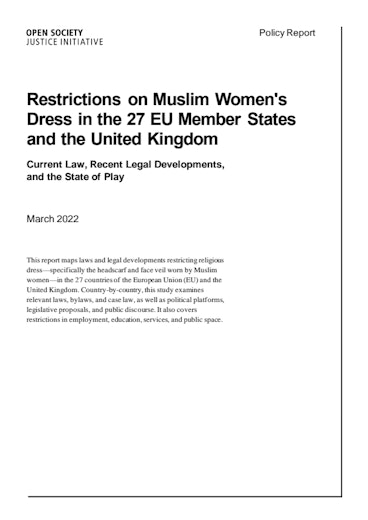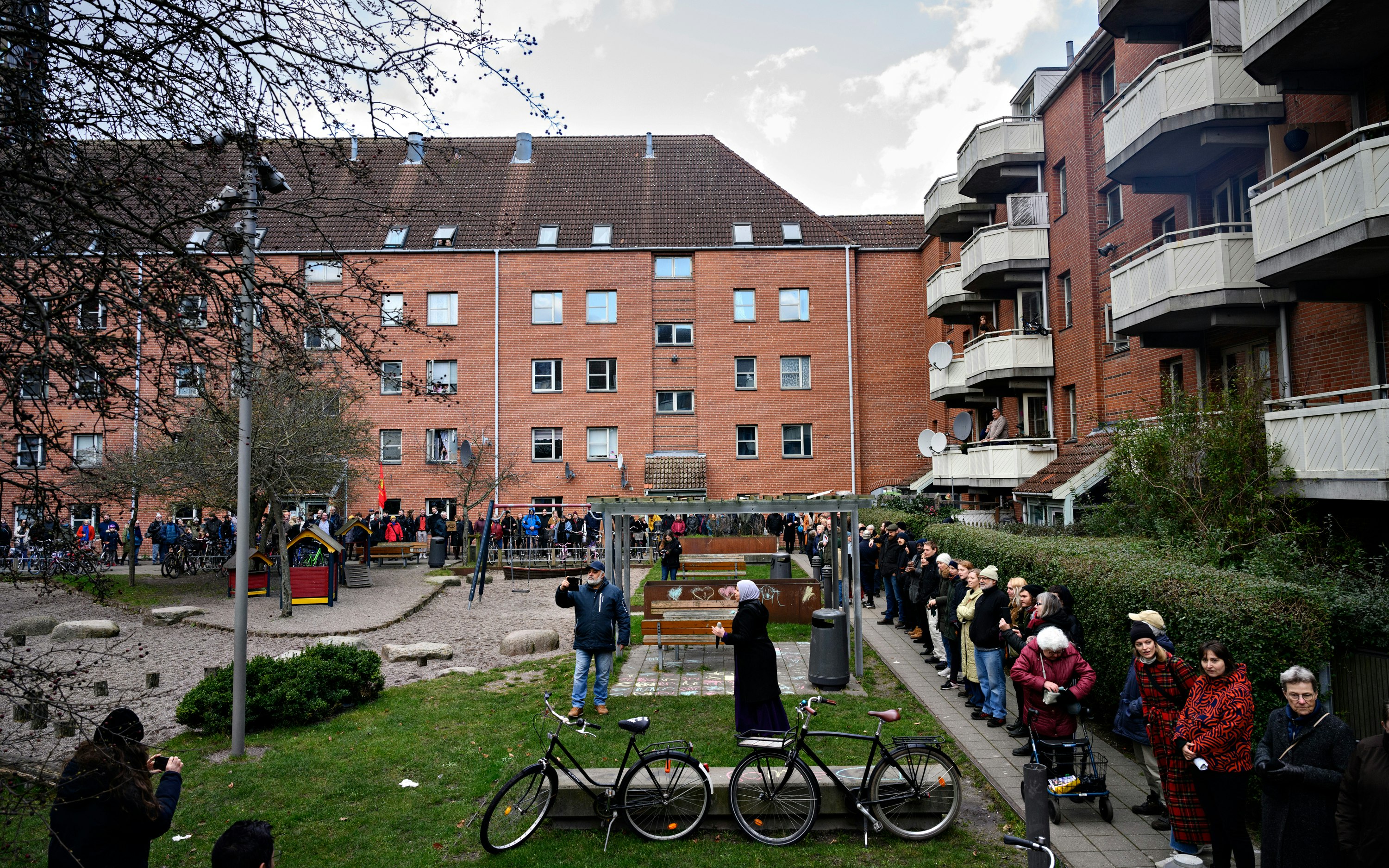Y, T & A v. Berlin Education Authority
Discrimination against Ethnic Minorities in Berlin Schools
Three school pupils of migrant background were admitted to the Leonardo da Vinci gymnasium, a top grammar school in Berlin. They were placed in a class disproportionately composed of children of migrant background. The class and the students were treated as having no academic future. Within a few months, the students were told that they would be relegated from the gymnasium at the end of the school year to a lower-level secondary school, due to poor results. A legal challenge to their treatment argued that educational reforms adopted in Berlin, which in principle allow easier access to quality secondary education at the gymnasium level, are being implemented in a discriminatory fashion that continues to restrict educational opportunities for children of migrant background. While their legal challenge failed, it brought about a change in the policy of Berlin schools.
Facts
In August 2011, the Leonardo da Vinci gymnasium established a class with approximately 66 percent of pupils from a migrant background. They came from the same primary school which itself was mainly composed of students of migrant descent. Some of the students had received a recommendation from former teachers that they should attend the gymnasium. Others had taken advantage of a change in the law that allowed them to attend without a specific gymnasium recommendation.
By October 2011, several students in this class were informed that they were to be relegated from the gymnasium at the end of the year and would be sent to lower-level Sekundarschulen elsewhere in Berlin.
During the rest of the academic year, the students complained that harsh disciplinary measures were imposed upon them and that the attitude of the school was that they were a “lost cause.” Some of the parents requested that their children be transferred to another, less “problematic” parallel class, but this was refused.
The school stated that it had not subjected the students to any discriminatory treatment, and that the reason for the relegation was that the students showed unacceptable behavior, were uninterested in learning, and came from a low education family environment.
At the end of the year, the students were relegated to the Alfred Durer integrated school, where they were placed in special classes for relegated pupils.
In December 2012, an answer to a question in the Berlin Parliament revealed that there were twice as many school pupils of migrant origin who were relegated from Berlin gymnasium than children without a migration background. Other schools in Berlin have segregated classes in which virtually all the children are from a migrant background. Across Germany as a whole, the official 2010 Ministry of Education report [PDF] reveals that children with a migration background attend the lowest tier secondary education twice as often as children without a migration background—even within the same socio-economic class.
Open Society Justice Initiative Involvement
Three students sought to challenge their discriminatory treatment and subsequent relegation by the school. The Justice Initiative supported the development of the cases at domestic level, providing legal advice on matters of European antidiscrimination law. In August 2012, Berlin based lawyer Carsten Ilius brought proceedings in the Berlin Administrative Court.
Antidiskriminierungsnetzwerk Berlin und Brandenburg and Migrationsrat Berlin Brandenburg together with consultants at the Law and Society Institute of the Humboldt University provided substantive support to the claimants and the community.
Arguments
Segregation of Pupils. A disproportionate number of pupils from a minority background were placed in the same class, which at the end of the year had the highest number of pupils relegated from the school. Disciplinary measures taken against the class were more severe and average results were much lower. The school argues that parental wishes to keep children in the same classes as their friends from primary school is responsible for the statistics.
No Justification. The school failed to provide a reasonable and objective justification for the difference in treatment. Disciplinary measures were taken without any attempt to address emotional or sociological problems. A decision was apparently made early in the academic year that the pupils were unable to follow the gymnasium curriculum, but no additional support was given to the provided, due to lack of resources.
Harm. The pupils have suffered as a result of an inferior curriculum and harsh disciplinary measures, and have as a result been forced out of the school. Their future careers are tainted by the unjustified stigma of having failed at the gymnasium and being placed in “relegated” classes at the secondary schools.
The Berlin Administrative Court Judgment
The Berlin Administrative Court rejected the pupil’s claims. It did not find sufficient evidence of an explicitly discriminatory practice, and found that the school results as well as the disciplinary records of the pupils justified the decision to put them into the relegation classes of the lower tier school. In addition, the Court held that, despite the fact that the Berlin school law provides that that all pupils should be educated together regardless of their background, there is no rule requiring the schools to ensure a balanced ethnic composition of classes. According to the court the schools have full autonomy and discretion to regulate these internal organizational matters themselves.
The pupils’ parents did not appeal the decision, partly due to the adverse personal, social, and emotional commotion the cases had brought about. The case allowed them to publicly state their point of view and created a debate on the issue of discrimination in education, leading to changes in the practice of Berlin schools.
Further Developments
The case sparked an intense debate in the German media as to whether ethnic discrimination indeed existed in the German education system or whether this was just “migrants complaining about other migrants.” This debate culminated in a symposium organized by the Antidiskriminierungsnetzwerk Berlin und Brandenburg and Migrationsrat Berlin Brandenburg together with the Justice Initiative entitled Naming Discrimination in Berlin Schools: From Racism to Inclusion, which was attended by 300 people, including pupils, their parents, parliamentarians, government officials, teachers, parents associations, teachers unions, school directors, human rights institutions, lawyers and the press. The symposium was preceded by the launch of an exhibition and report by the Justice Initiative Standing Up for Equality in Germany’s Schools, which gives a face and a voice to the discrimination that many children with a migration background experience in Berlin.
At the symposium the Berlin Deputy Minister of Education made an explicit recognition that racism is a problem in German education, as well as in German society more generally. He agreed to work together with civil society actors to fight this phenomenon among others through the establishment of an independent complaint mechanism against discrimination in education. This has resulted in the formation of a working group made up of a number of antidiscrimination, migrant and parents’ organizations, together with the Berlin education authority, working on a road-map towards the establishment of the complaint mechanism. The Justice Initiative is supporting the Migrationsrat Berlin Brandenburg that is coordinating this process on the civil society side.
In addition, following the court case, the Berlin Education Inspectorate engaged in a closer and more rigorous scrutiny of the implementation of the rule of joint education of all pupils regardless of their ethnic background.
Symposium—Naming Discrimination in Berlin Schools: From Racism to Inclusion.
Launch of report Standing Up for Equality in Germany’s Schools.
Berlin Administrative Court holds public hearing rejecting the pupil’s claims (see reasoning above).
Cases filed before the Berlin Administrative Court.
Related Work
In German Schools, a Quiet but Deep Discrimination Problem
Testimonies of students, parents and teachers paint a bleak picture of the challenges facing children from “migration background” in Berlin schools.

Restrictions on Muslim Women's Dress in the 27 EU Member States and the United Kingdom
This policy brief and accompanying fact sheet map EU and UK laws and pending legislation restricting religious dress—specifically the headscarf and face veil worn by Muslim women.

Evidence Suggests Evictions in a Danish Neighborhood were Racially Biased. Now the Case is Before the High Court.
This case may set an important precedent for standards for discrimination in Denmark.
